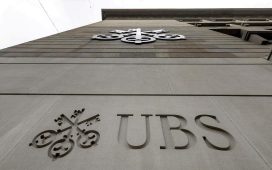PARIS – When French tyre maker Michelin closed its factories during the Covid-19 pandemic, Mr Florent Menegaux, the company’s chief executive, took stock of the closures’ impact on employees worldwide. Thousands of workers in Asia, Europe and the United States at the lower end of the company’s pay scales could barely get by, an independent review showed. Michelin vowed to do better.
Last week, the 134-year-old company, which has 132,000 workers at 131 factories in 26 countries, announced that it would guarantee all of its employees a “decent wage” wherever they were in the world, part of a broader social plan intended to ensure that none of its workers would have to struggle to make ends meet.
“If workers are just in survival mode, it’s a big problem,” Mr Menegaux said in an interview. “When the wealth distribution in a company is too unequal, that’s a problem, too.”
The announcement quickly ignited a debate in France over what exactly constitutes a decent wage, and whether more French corporations should follow suit. Unions warned that the Michelin pledge would still leave some workers struggling, and that it did not come with a guarantee against future layoffs or site closures.
Corporations worldwide are looking to meet environmental, social and governance (ESG) targets. A lot of investors are backing away from ESG criteria, but some companies are signing up to become living-wage employers, which commits them to pay salaries that correspond to the costs of rent, food, transportation and childcare in the regions where their workers live.
In France, cosmetics giant L’Oreal committed to a living wage and extended the pledge to its suppliers. Unilever is taking the same steps. Only 4 per cent of the world’s most influential companies have made similar commitments, according to the World Economic Forum.
Michelin’s salary pledge caught the attention of French President Emmanuel Macron, who had said he wanted companies to share more profits with workers. His government is facing a political storm as households struggle with a cost-of-living crisis. The share of workers who earn France’s gross monthly minimum wage of €1,766 (S$2,570), which is indexed to inflation, has surged to 17 per cent of the workforce from 13 per cent just a few years ago.
French Prime Minister Gabriel Attal has called for talks with trade groups and proposed tax changes to encourage businesses to pay more than the minimum wage, which social organisations say is often not enough for workers to get to the end of the month without government subsidies.
Mr Menegaux declined to divulge how much Michelin’s lowest-paid workers around the world had been earning, but said their pay was higher than the local minimum wage, which he described as “not a decent salary”. He added that a living wage was a way to help move employees “at the bottom of the ladder up”.
He decided to take action, he said, when the closure of Michelin’s factories during the pandemic revealed weak social safety nets worldwide. In France, the government shielded workers from layoffs by paying companies to put them on partial furlough. But in other countries, such support either did not exist or was insufficient.
In creating its “decent wage”, the company, known for its rubbery Michelin Man mascot, referred to standards set by the United Nations Global Compact: a salary enabling a family of four to live “decently” in the city where they work. That means not running out of money before the end of the month after paying basic expenses and being able to save and spend modestly on goods or leisure activities, Me Menegaux said.
Michelin turned to the Fair Wage Network, a non-governmental organisation based in Switzerland, to assess its salary structure. The resulting study found that 5 per cent, or around 7,000, of Michelin’s employees worldwide were not earning enough.
In response, Michelin adapted its salary scales to the cost of living in cities where its factories operated. In Beijing, the group increased the lowest pay level to 69,312 yuan (S$13,300) a year. In Greenville, North Carolina, workers’ base pay rose to the equivalent of €40,000 a year.
In France, where the gross minimum wage is €21,203 euros a year, the company lifted the salaries of its lowest-paid workers to €39,638 in Paris and €25,356 in Clermont-Ferrand, where the company’s headquarters are and where the cost of living is lower than Paris’.















